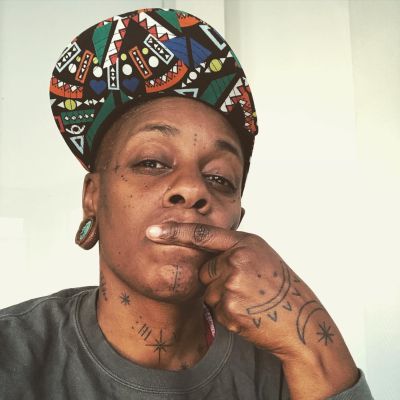DJ Lynnée Denise coined the term ‘DJ Scholarship’ in 2013 to explain DJ culture as a mixed-mode research practice. She's a London and Amsterdam-based Capricorn, scholar, professor, and writer raised by her parent’s record collection in Los Angeles, California.
https://www.podomatic.com/podcasts/djlynneedenise
The Afro-Digital Migration: Global Blackness and Amapiano in Post Apartheid South Africa
South Africa is one of my musical mothers. I discovered this nearly twenty years ago when I stepped on the continent for the first time and landed near the Indian Ocean in the city of Durban. By the time I pulled up to Durban, I had already spent that entire year listening to a Zulu musician, also from Durban, by the name of Busi Mhlongo. And while her name never really circulated in the States like a Miriam Makeba or a Letta M’bulu, I knew that her voice, her music, and her movement was an invitation to reacquaint myself with the long standing relationship between Black South Africans and Black Americans. So, whether we’re talking about the parallel musical and personal lives of Brenda Fassie and Whitney Houston or the parallel demonization of exiled political warriors Duduzile Ndwashlana and Assata Shakur, I know that South Africa has rhythmic resistance strategies that Black Americans have and should continue to learn from.
It’s been four years since I released my last mix, and six years since I released a musical essay from my Afro-Digital Migration series. House Music in Post-Apartheid South Africa. The gap in time is a reflection of the shift in direction my practice has taken since I’ve moved from behind the turntables into the university classroom. DJ Scholarship took me to new places—but South Africa continues to call me home to the decks. In November of 2019 I was indoctrinated into the sound movement known as Amapiano, a sub-genre of deep house that nods its head to the tempo of Kwaito and uses the organ as a primary time machine for Diasporic travel. Imagine if the global Black church had an 808 drum near the choir stand. Amapiano is closely related to what I call Blues Ministry, that genre of music that samples and creates an interdependent relationship between the sacred and the profane. Spiritually fucked by the bass.
I produced this mix while also thinking about global Blackness and how it informs how we listen to music and what we listen for. DJs were the first people to introduce me to music of the Black Atlantic. Sade’s residency on Quiet Storm Black American radio and Hugh Masekela’s imprint on Sunday jazz radio taught me about a transnational conversation that through music has remained in place representing a divine interconnectedness. To me, DJ Scholarship holds the intimacies that unfold within the worlds of the Black diaspora and the mix brings together multi-vocalities that speak to this unfolding.
Opening with the spokesperson for the Movement for Democratic Change Alliance party, Fadzayi Mahere addresses rising tensions in Zimbabwe after being arrested while protesting the government’s response to COVID and decades of struggles informed by the after lives of colonialism. It includes Nina Simone talking about her beloved chosen countries Liberia and Switzerland. I sample a call and response moment from the 2002 film Amandla and got blessed with a guest drop by Zama Dube, former radio host from YFM, and one of the most important people I’ve met this year. Zama Dube, again from Durban, was my thinking partner for this music. In this sense the mixed tape symbolizes what Louis Chude Sokei would call a "Diasporic echo chamber" that came together as we hit corners in the Crenshaw district blasting township funk.
The final voice is the masterful Dick Gregory from the 1972 Nation Time convention which took place in Gary, Indiana. I was invited by filmmaker and cultural critic dream hampton to produce a mix in response to the August 28, 2020 Black National Convention inspired by Nation Time. The Black Convention "recognizes a shared struggle with all oppressed peoples—and that collective liberation will be a product of all of our work. It is our hope that by building in solidarity and working together to create and amplify a shared agenda, we can continue to move toward a world in which the full humanity and dignity of all people is recognized.”
It made sense for me to consider how this virus and the political fuckshit that enwraps us all is something that music will hold in its lyrics—sound tracking what we feel and see.
